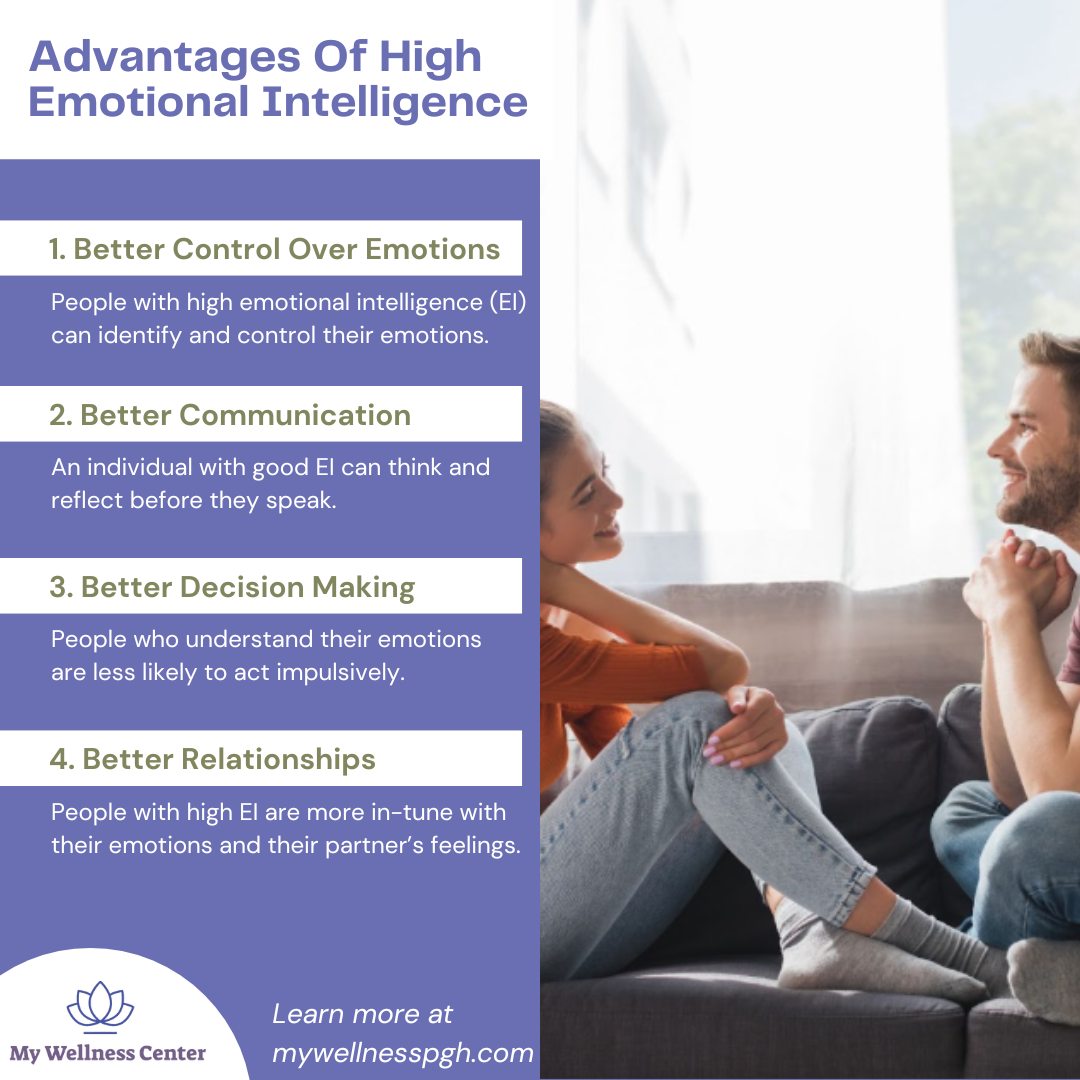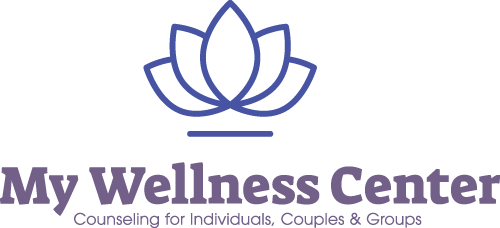Do you know how important it is to have emotional intelligence in a relationship? If you’ve never considered it before, picture this scenario:
You come home from work tired. Your boss complained about your performance on a recent assignment, a customer yelled at you on the phone, and you had to take the long way home because of a new construction project.
You walk through the door and the TV is blasting while your kids jump from the couch onto the recliner. Your dog runs by the door, knocking against your legs and causing you to stumble against the wall.
From the other room, your spouse calls out with a few rapid-fire questions:
- Did you remember to get milk on the way home?
- Can you make dinner in the next 20 minutes?
- Can you help the kids with their history projects due tomorrow?
How do you respond?
Do you yell at the kids to calm down, for the dog to sit, and for your spouse to carry their weight around the house?
Or, do you acknowledge that you’re feeling overwhelmed, ask for a few minutes to decompress, and go sit quietly so you can relax and get back to an emotional baseline?
If you pick the second choice, you likely have good emotional intelligence. And emotional intelligence is essential for healthy, long-term relationships. Continue reading to learn more!
Table of Contents
What Is Emotional Intelligence?
Emotional Intelligence In Relationships
How to Improve Emotional Intelligence In A Relationship
Use Therapy to Develop Emotional Intelligence
What Is Emotional Intelligence?
Emotional intelligence (EI)—sometimes referred to as emotional quotient (EQ)—is the ability to understand and manage one’s own emotions in a positive, effective manner.
High emotional intelligence requires similarly advanced self-awareness. When you’re capable of identifying your emotions, strengths, and weaknesses at any given moment, you have greater control over your actions and the way you interact with other people.
With that in mind, emotional intelligence is essential in all relationships, but especially in romantic relationships.
Advantages of High Emotional Intelligence
Having increased emotional intelligence can benefit individuals in other areas of life. Significant benefits include:

- Better Control Over Emotions – Individuals with high EI are often more capable of identifying and controlling emotions. If someone is angry, for example, they may be better able to calm themselves down than someone with lower EI.
- Better Communication – When someone is more in tune with their emotions, they’re frequently able to take those emotions into account when communicating with someone else. Again, when someone is angry, they may choose to think carefully before they speak, allowing them to maintain control over their words.
- Better Decision-Making – Individuals who understand how they feel and have an ability to control their emotions are less likely to be impulsive. Instead, they take measured consideration before taking action.
- Better Relationships – Individuals with higher EI levels are more in tune with their own feelings and their partner’s feelings. These individuals are frequently able to express their own wants and needs while simultaneously supporting their partner.
Emotional Intelligence In Relationships
As much as emotional intelligence revolves around our ability to identify our own thoughts and feelings, it’s also directly related to the way we act around others.
Benefits Of Emotional Intelligence In Relationships
Emotional intelligence plays a vital role in creating and maintaining healthy, fulfilling relationships. Here are some key benefits of high emotional intelligence in romantic partnerships:
1. Improved Conflict Resolution
Partners with high emotional intelligence are better equipped to handle disagreements calmly and constructively. Instead of escalating conflicts, they use empathy and active listening to understand their partner’s perspective and find mutually beneficial solutions.
2. Stronger Emotional Connection
Emotional intelligence fosters deeper emotional intimacy. By understanding and validating each other’s feelings, partners can create a safe and supportive environment where they feel seen, valued, and respected.
3. Enhanced Communication
Couples with high EI tend to communicate more effectively. They can express their thoughts and feelings clearly, listen attentively, and respond thoughtfully, reducing misunderstandings and fostering a more open and honest dialogue.
4. Increased Trust
Emotional intelligence helps build trust by promoting transparency, empathy, and consistency in behavior. Partners are less likely to act impulsively or say hurtful things, creating a foundation of reliability and mutual respect.
5. Better Stress Management as a Team
Life’s challenges can strain any relationship, but emotionally intelligent partners are better able to navigate stressful situations together. They support each other emotionally, regulate their own stress responses, and maintain perspective during difficult times.
6. More Satisfying Relationships
Couples with high EI are more likely to experience happiness and satisfaction in their relationship. By recognizing and meeting each other’s emotional needs, they create a nurturing and harmonious partnership that thrives over time.
Signs Of Low Emotional Intelligence
You should remain vigilant for signs of low emotional intelligence in yourself and your partner, including:
- Inability to Regulate Emotions – If you or your partner struggles to identify and control emotions, that could be an indicator of low emotional intelligence.
- Frequently Becoming Overwhelmed – If you or your partner frequently grow overwhelmed when they experience strong emotions, that’s another sign of low EI.
- Disrespectful or Condescending Words or Tone – People with low emotional intelligence may struggle to manage their tone or choice of words during conversations, particularly in moments of stress or conflict.
- Inability to Communicate or Express Needs – A lack of emotional intelligence often results in difficulty articulating personal feelings, desires, or concerns.
The better you can spot low emotional intelligence within yourself, the better you can work to develop this skill.
How to Improve Emotional Intelligence In A Relationship
Improving one’s emotional intelligence can offer similar improvements in the relationship. Some strategies to increase emotional intelligence:
1. Use Active Listening Exercises
Active listening is a technique for showing you’re truly engaged in both sides of the conversation. Tactics you can use:
- Paraphrase your partner’s main idea to demonstrate understanding.
- Ask clarifying or open-ended questions. Something as simple as “Tell me more about that,” or “How can I help you?” can be enough to make the other person feel valued and heard.
- Use positive body language. Turn toward your partner, nod, and smile to show you’re actively listening.
2. Practice Empathy
Empathy is closely related to emotional intelligence as it’s the ability to understand and share what other people are feeling.
Ways to practice empathy include:
- Use active listening to show you’re engaged.
- Avoid assumptions—listen to what the other person is really saying.
- Acknowledge their emotions, and accept how they feel.
- Beware your own biases and how those biases may interfere with your understanding of the person or their unique perspective.
3. Journal And Reflect
Setting aside time to journal or meditate can be a powerful step toward achieving a deeper understanding of yourself, your surroundings, and your relationship.
Give yourself the time to understand the way you feel and why you feel that way, then consider how those factors influence the way you interact with your loved ones.
4. Compromise
Compromising can be a powerful strategy for demonstrating emotional intelligence, as it considers the perspectives, emotions, and goals of all parties. Reaching a fair compromise demands the ability to practice empathy and active listening, ultimately reaching a desirable conclusion.
Use Therapy to Develop Emotional Intelligence
To develop your emotional intelligence, contact us! Through therapy, our team of therapists can help you become more thoughtful and observant with your own emotions—while simultaneously equipping you with the tools and techniques necessary to better control those emotions.

